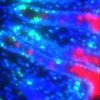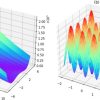Texas A&M TRIPODS Research Institute for Foundations of Interdisciplinary Data Science (FIDS)
Mission Statement
Data Science is rapidly evolving as an essential interdisciplinary field, where advances often result from a combination of ideas from several disciplines. New types of data have emerged and present tremendous complexities and challenges that require a novel way of interdisciplinary thinking. The Texas A&M Research Institute for Foundations of Interdisciplinary Data Science (FIDS) will bring together researchers from six disciplinary areas, Statistics, Electrical Engineering, Mathematics, Computer Science, Industrial & Systems Engineering, and Operation Management to conduct research on the foundations of data science motivated by problems arising in bioinformatics, the energy arena, power systems, and transportation systems. This Institute for Foundations of Interdisciplinary Data Science will be well positioned to develop rigorous theories, novel methodologies, and efficient computational techniques to solve data challenges in many other application domains.
Announcements
Recent News

NSF Awards $1.5 Million TRIPODS Institute to Texas A&M to Bolster Data-Driven Discovery
A cross-disciplinary team of Texas A&M University researchers lead by statistician Bani Mallick has been awarded a three-year, $1.5 million Transdisciplinary Research In Principles of Data Science (TRIPODS) grant from the National Science Foundation (NSF) to establish a new institute, the Texas A&M Research Institute for Foundations of Interdisciplinary Data Science (FIDS).

FIDS Investigator, Simon Foucart Recognized as TAMU 2019 Presidential Impact Fellow
This is a recognition of the scholarship, personal commitment, and global impact awardees are making as they rise to meet challenges of their filed and demonstrate impact.

FIDS Member, Yu Ding Recognized by the Institute & System Engineers Technical Innovation Award
Dr. Yu Ding received the 2019 Technical Innovation Award from the Institute & System Engineers (IISE) for his outstanding work on data science for wind energy applications.

FIDS Member, P.R. Kumar and Le Xie receive $4.4 Million Department of Energy Grant to Enhance Solar Technology
The team received $4.4M for their project "Secure Monitoring and Control of Solar PV Systems through Dynamic Watermarking."

FIDS Sponsoring OpenVINO Toolkit Workshop
FIDS partially sponsoring the workshop on on OpenVINO tool kits. OpenVINO stands for Open Visual Inference and Neural Network Optimization. It is a toolkit provided by Intel to facilitate faster inference of deep learning models.

FIDS Executive Committee Member Receives AFS Distinguished Award for Research
Two faculty members from the Texas A&M University College of Engineering were selected to receive a 2020 Distinguished Achievement Award for research from Texas A&M and The Association of Former Students.

Professor Le Xie Discusses How The COVID-19 Pandemic Impacts Electricity Usage
As the COVID-19 outbreak swept through Manhattan and the surrounding New York City boroughs earlier this year, electricity usage dropped as businesses shuttered and people hunkered down in their homes.

TAMU Statisticians Identified Significant Impact of Reopening on COVID-19 Transmission in USA
The novel coronavirus disease (COVID-19) pandemic resulted in an unprecedented lock-down of the United States. After weeks of lock-down, states reopening has raised concerns about potential exacerbation of the epidemic.

FIDS Members Receive $1.2 Million NSF Grant
This grant will allow the members to study cyber-physical system based on dynamic nanoscale imaging.

Wiley Analytical Science Reported FIDS Member, Yu Ding's Super-Resolution Method for Enhancing Paired Electron Microscopic Images
US-based researchers have developed a super-resolution image processing method for paired electron images to improve the quality of low-resolution electron micrographs.

Texas A&M University Announces 2020 EDGES Fellows Including Two FIDS Members
Nineteen distinguished Texas A&M University faculty have been honored as 2020 Chancellor Enhancing Development and Generating Excellence in Scholarship (EDGES) Fellows.

Texas A&M Statistician Bani Mallick Earns University of Connecticut Distinguished Alumnus Award
Dr. Bani K. Mallick, distinguished professor of statistics and holder of the Susan M. Arseven ’75 Chair in Data Science and Computational Statistics at Texas A&M University, has been honored by the University of Connecticut Department of Statistics with its Distinguished Alumnus Award for 2020-2021.

We are in NSF Research News
Researchers develop treatment using turmeric for canine eye condition.

4th Annual Bioinformatics Symposium
Cancer: Basic Research to Bioinformatics. Jointly Hosted by IAMCS, Center for Statistical Bioinformatics and Texas A&M TRIPODS FIDS Institute. Friday, September 10, 2021. Check the link for the registration details.

Our Members have Multiple Papers accepted in NeurIPS 2021
Implicit Sparse Regularization: The Impact of Depth and early Stopping : Li, J., Nguyen, T., Hedge, C. and Wong, R.
T-LoHo: A Bayesian Regularization Model for structured sparsity and smoothness on graphs: Lee, J., Luo, T., Sang, H.
BAST: bayesian Additive Regression spanning Trees for complex constrained domain: Luo, Z., Sang, H. and Mallick, B.
Row clustering of a point process-valued matrix: Yin, L., Xu, G., Xu, G., Sang, H., Guan, Y.

David Donoho presented TRIPODS FIDS Distinguished Lecture , 18th October, 2021
ScreeNOT: Exact MSE-Optimal singular value thresholding in correlated noise

Kumar awarded Institute of Electrical and Electronic Engineers Medal
Dr. P.R. Kumar is the 2022 recipient of one of the Institute of Electrical and Electronics Engineers’ (IEEE) most prestigious honors — the IEEE Alexander Graham Bell Medal. It is the highest award by IEEE in communications and networking. Kumar was recognized for his seminal contributions to the modeling, analysis and design of wireless networks.

Texas A&M Chemist Sarbajit Banerjee and a FIDS collaborator received TAMEST Edith and Petr O'Donnell award for science
Texas A&M University chemist Sarbajit Banerjee has been selected by The Academy of Medicine, Engineering and Science of Texas (TAMEST) to receive one of the Lone Star State’s highest scientific honors, the Edith and Peter O’Donnell Award celebrating rising stars in the Texas research community and their cutting-edge research.

Tamara Kolda presented TRIPODS FIDS Distinguished Lecture , 31st January, 2022
Tnsor Moments of Gaussian Mixture Models: Theory and Applications

Nature Computation Materials published our paper on Bayesian Optimization for automated experimental Design
In this paper, we propose a fully autonomous experimental design framework that uses more adaptive and flexible Bayesian surrogate models in a Bayesian Optimization procedure, namely Bayesian multivariate adaptive regression splines and Bayesian additive regression trees to replace existing Gaussian Process based methods.

